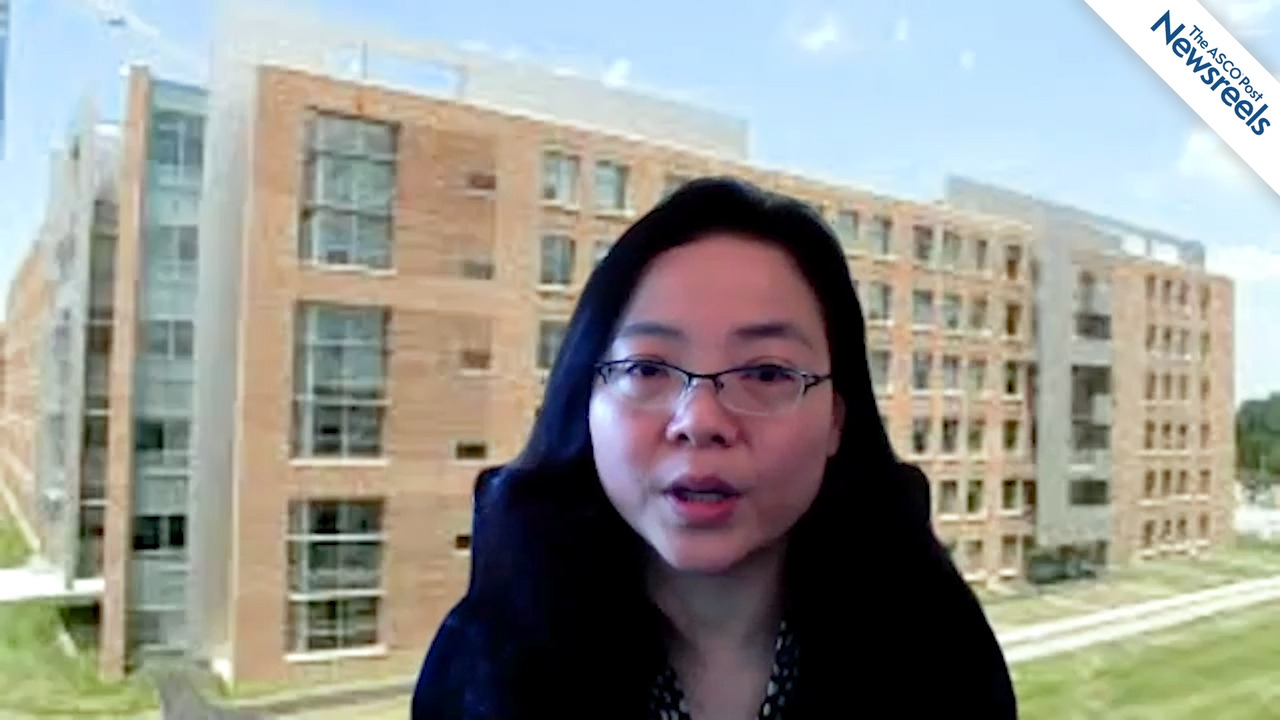Lajos Pusztai, MD, PhD, on Breast Cancer: I-SPY2 Trial on Durvalumab, Olaparib, and Paclitaxel
AACR Virtual Annual Meeting 2020 I
Lajos Pusztai, MD, PhD, of Yale Cancer Center, discusses study results on durvalumab in combination with olaparib and paclitaxel as neoadjuvant treatment in patients with high-risk HER2-negative stage II/III breast cancer. Compared with patients who received chemotherapy alone, the combination improved pathologic complete response, even in women with triple-negative breast cancer (Abstract CT011).
The ASCO Post Staff
Steven J. O’Day, MD, of the John Wayne Cancer Institute, discusses phase II results for the combination of pembrolizumab with a novel innate immune activator, Imprime PGG, as second-line treatment for patients with metastatic triple-negative breast cancer ( Abstract CT073).
The ASCO Post Staff
Ryan J. Sullivan, MD, of Massachusetts General Hospital Cancer Center, discusses early results on COM701, a first-in-class immune checkpoint inhibitor, which showed preliminary antitumor activity as a monotherapy and in combination with nivolumab in a variety of heavily pretreated patients with advanced or metastatic solid tumors (Abstract CT031).
The ASCO Post Staff
Nickolas Papadopoulos, PhD, of Johns Hopkins Medicine, discusses a first-of-its-kind prospective study that evaluated a screening blood test in more than 10,000 older women with no history of cancer. The test, called DETECT-A, identified 10 different cancer types, 65% of which were early-stage disease (Abstract CT022).
The ASCO Post Staff
Qi Liu, PhD, of the U.S. Food and Drug Administration, discusses data that suggest that patients with advanced non–small cell lung cancer who had a past medical history of pneumonitis were more likely to experience treatment-associated pneumonitis in response to immune checkpoint inhibitors or chemotherapy (Abstract CT086).
The ASCO Post Staff
Kimlin T. Ashing, PhD, of City of Hope National Medical Center, discusses analyses that showed neighborhoods with lower-income and minority populations had a greater number of tobacco and vape shops, increased use of electronic nicotine delivery systems, and lower-priced tobacco products. This information may help public health efforts address the high rates of vaping among teenagers in these communities (Abstract CT087).





